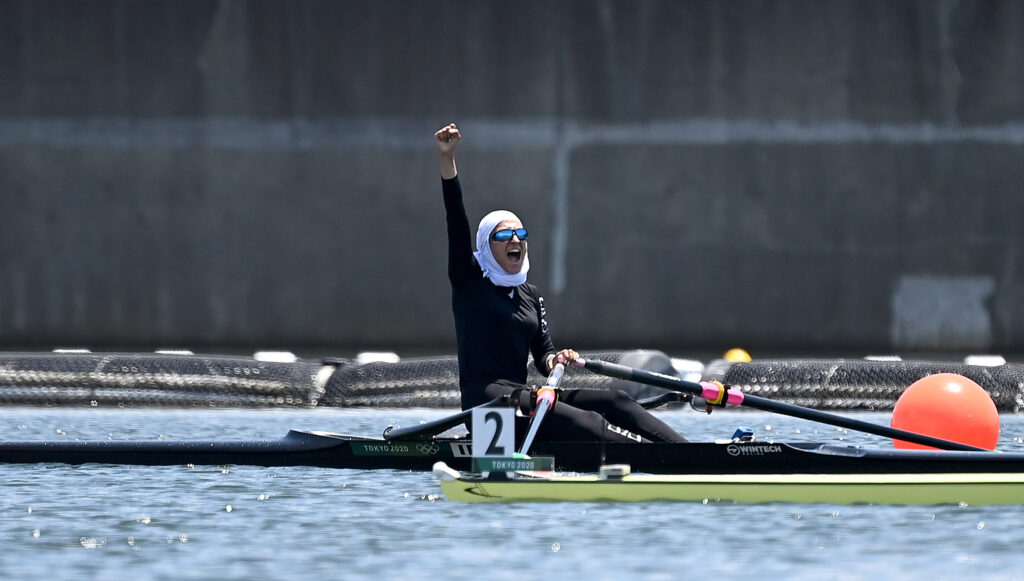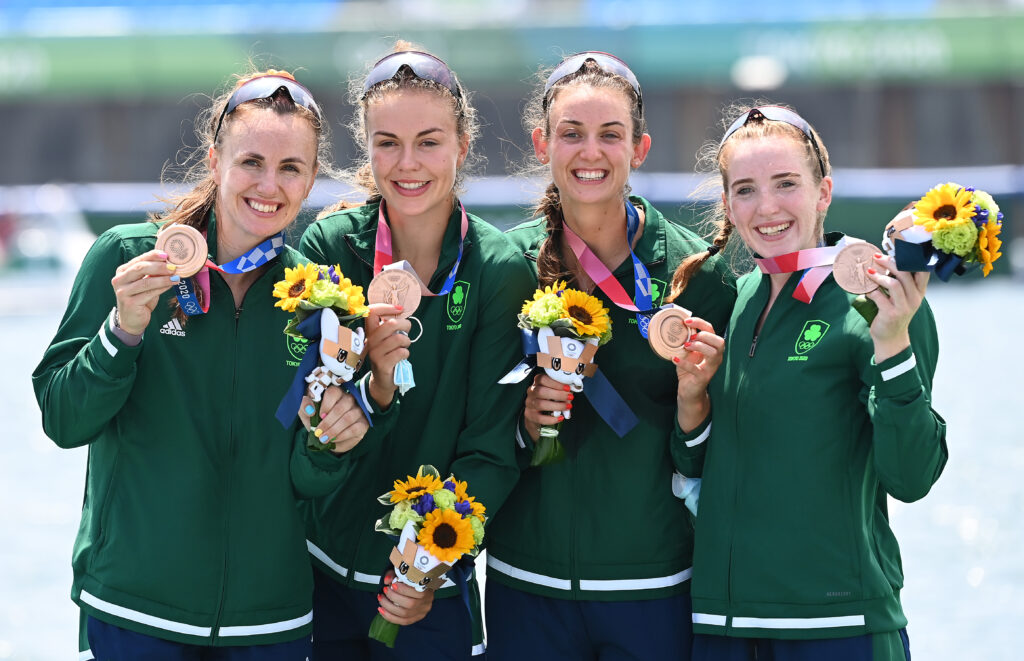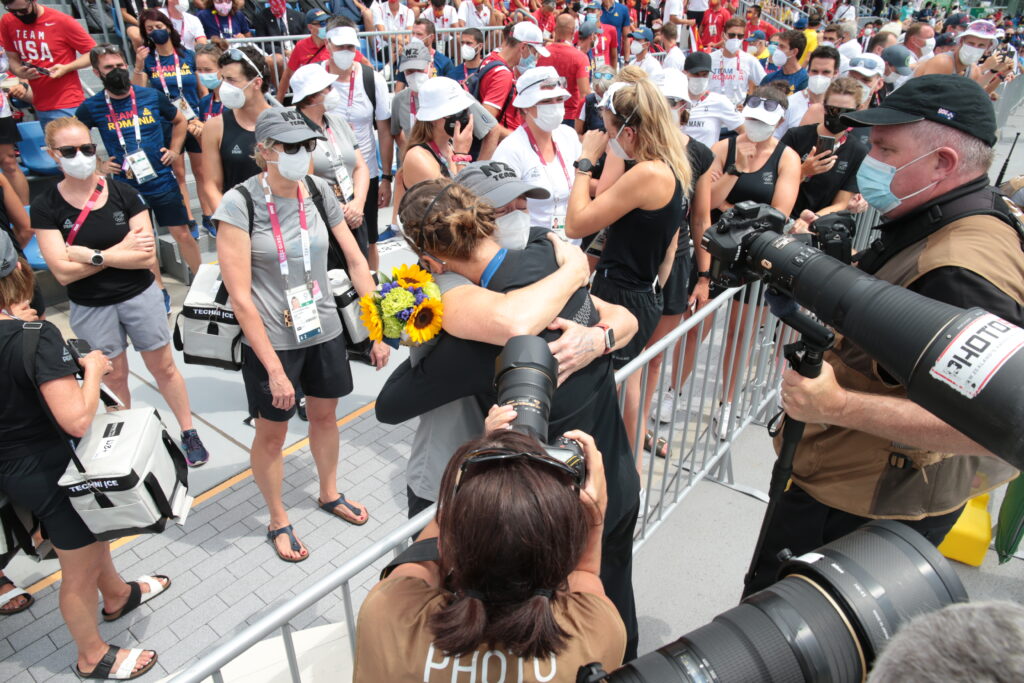
25 Jul 2024
Olympic Rewind: Tokyo 2020 - "The Covid Games"
The Tokyo Olympic Games was unique in so many ways. Not only was it postponed by a year, when it did run, it was with no spectators; all due to the impact of the Covid-19 Pandemic. With athletes having to face the impact of waiting for a year, while managing varying abilities to train within “lockdowns”, their arrival to Tokyo’s Sea Forest Waterway was much awaited.
The Regatta provided all sorts of surprises including unexpected results and multiple Olympic Best Times being broken. 526 athletes from 79 nations competed between 23-30 July 2021, although the competition saw two days with no racing in the middle, due to an approaching typhoon. At the end of the six days of competition (reduced from eight), it was New Zealand at the top of the medal table, having claimed three gold and two silver. Rowers from 18 reached the podium in total. We reflect on some of the most memorable moments of Tokyo 2020…
Key moments

History made for Iran
The early stages of competition provided an historic moment for Iran when Nazanin Malaei secured her place in the A/B semifinal of the women’s single sculls. No other Iranian woman had ever made the top 12 at an Olympic Regatta. In her quarterfinal, she was up against the familiar names of Emma Twigg (New Zealand) and Jeanine Gmelin (Switzerland), but that didn’t phase her. Malaei went on to finish fifth in the B Final. At a mere 173cm, Malaei had been told she was too short for rowing, but on Sea Forest Waterway, she had proved that certainly wasn’t true. Her hand pointing at the sky as she crossed the line became one of the top images of the Tokyo Games after what was arguably one of the best performances of the Regatta.

Return of the women’s four
Tokyo saw the women’s four back in the Olympic programme for the first time since 1992 after World Rowing suggested moving to gender parity. The final was epic and saw many more historical moments. There was a battle for the lead between Australia and the European Champions from the Netherlands, but Australia came out on top and the time of 6:15.37 beat the previous Olympic Best Time by a a staggering 13 seconds, and was just one second short of the World Best Time. Meanwhile, behind the Netherlands, Ireland had made history too. They had qualified via the Final Olympic Qualification Regatta a few months before and had come to Tokyo and claimed a bronze – the first ever Olympic rowing medal for Irish women.
When every stroke counts
The final of the lightweight women’s double sculls was arguably the closest race of the Olympic Regatta and there were tense moments as the rowers waited for the results of the review of the photo finish. With the lead having changed several times during the race, all six boats had finished within less than two seconds of each other. It was eventually announced that Italy had taken gold. Valentina Rodini and Federica Cesarini had won the first-ever Olympic gold, or Olympic medal, for Italian women’s rowing. Then came the announcement of the rest of the positions. France’s Laura Tarantola and Claire Bove had taken silver with the Netherlands pushing Great Britain out of the medal zone by just 0.01 seconds.
The British crew of Imogen Grant and Emily Craig is unchanged for Paris and they are unbeaten since Tokyo so we wait to see what they will be able to do at their second Olympic Games.

The Kiwi comeback
New Zealand’s Emma Twigg had retired from international competition after heart-braking fourth place finishes at both the 2016 and 2012 Olympic Games. But here she was, back at an Olympic Regatta. Could this finally be her time? Twigg looked impressive from the start, comfortably winning her heat and clocking the fastest time across the six heats, she went on to win her quarter and semi finals too, so hopes were high. When the final came around, Twigg got out of the blocks unusually fast and established a lead, gradually opening up clear water, but she knew that Prakasten (ROC) had a huge sprint in her. In the last quater, Prakhatsen started to pile on the pressure, but it wasn’t enough. Twigg had done it. In her fourth Olympic Games, Twigg had finally become Olympic Champion, and she had set a new Olympic Best Time of 7:13.97 in the process.
Eights
An historic Olympic Regatta was bought to a conclusion with the finals of the women’s and men’s eights, both of which provided more significant moments. Despite a determined effort from the reigning World Champions from New Zealand, the Canadian women’s eight held them off the way to secure the first Olympic gold for Canada in this boat class since 1992. However, history was also made by the Kiwi eight as their silver medal was the first time the nation had ever claimed a medal in the women’s eight, and it was also the second medal of the regatta for Grace Prendergast and Kerri Gowler who had won gold in the women’s pair just the day before. Meanwhile, further history came for China, claiming the bronze medal, forcing the United States into an unexpected fourth place.
New Zealand reversed the result in the men’s eight. While the boat class had seen a familiar battle between Germany and Great Britain over the preeeding years, neither of them could match the speed of New Zealand in the second half of the race, after they overhauled Germany. It was the first Olympic gold in the men’s eight for New Zealand since 1972. A photo finish followed with Germany taking silver and Great Britain bronze, one of just two medals for the Brits in Tokyo.

